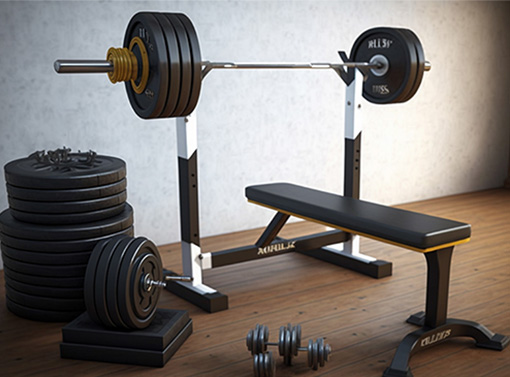This or That
Dumbbells vs Barbellsby Colin Butler
Vertex Education Ambassador
Our This or That segments will feature the pros and cons of different fitness and nutrition options so you can make the right decision for you in the right circumstance. Today we’re comparing barbells and dumbbells.
Which is Better?
It depends on your goal. Both are great in their own way whether it be for getting stronger, building stability, or when considering how much space you have to use. However, there are some pros and cons to each of them.
What are the Differences?
There are obvious differences between the two in their shape and length, how they’re held, the way the weight is distributed during the exercise, and what exercises can be done with each. Some exercises cannot be done with a barbell, and others won’t be as effective with dumbbells.

| Barbells - PROS | Dumbbells - PROS |
|---|---|
| Pros | Pros |
| Simply put, the primary benefit barbells have over dumbbells is that they let you lift more weight. A lot more weight. | Dumbbells provide greater range of motion. |
| They make it easier to maintain balance and stability during an exercise increasing how much the larger muscles are engaged | They can help improve muscular imbalances in either strength or size by training limbs independently. |
| They allow you to engage larger muscle groups. | They allow for more activation of smaller, stabilizing muscles. |
| Barbells are better for squats and deadlifts because they feel more natural, and you can load them appropriately. | Exercises can be more joint-friendly because you can rotate your joint position independently. |
| They are potentially less risky especially for newer lifters because they are lighter in weight. | |
| They are ideal for smaller training spaces like a garage. | |
| If you fail a rep, it’s much easier to drop the weight safely. |
| Barbells - CONS | Dumbbells - CONS |
|---|---|
| Pros | Pros |
| Your dominant limb can compensate for the weaker limb which can exacerbate any imbalances you have resulting in injury. | They require more balance causing them to be more challenging to coordinate, balance, and stabilize two weights at the same time. |
| They are not as easy to carry around a gym to pair exercises together. | They may be less effective for lower body training as your grip may prevent you from progressing to heavier weights. |
| They require more space or a specific station to use. | |
| If you fail a rep, you could be pinned under a heavy bar. |
When to Use Each?
While there are benefits to using each for specific exercises, that doesn’t mean you have to use them exclusively for those exercises. For maximizing strength, rely more on barbell-based movements because they allow for better stability through the movement which helps put load on the larger muscles, especially for the lower body. For injury prevention/recovery, dumbbells are probably better than barbells because you can address and improve left and right imbalances and go through a fuller range of motion with upper body exercises.

